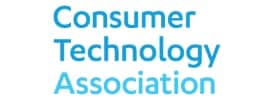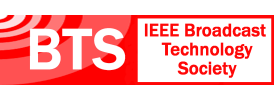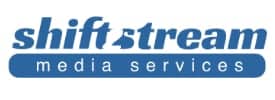- About
- Members
- Sponsors
- Subcommittees
- About Our Subcommittees
- Technology Group 3
- Implementation Team 1 – Advanced Emergency Information
- Implementation Team 2 – India
- Implementation Team 3 – ATSC 3.0 Conformance
- Implementation Team 4 – Brazil
- Implementation Team 5 – Tower Network
- Implementation Team 7 – Caribbean
- Implementation Team 8 – Automotive
- Planning Team 4 – Future Broadcast Ecosystem Technologies
- Planning Team 5 – Automotive Applications
- Planning Team 6 – Global Recognition of ATSC 3.0
- Planning Team 9 – Sustainability
- Technical Documents
- News
- Events
- Spotlight ATSC 3.0
- Contact Us
- Member Login
- Member Meetings
- Advanced Search
Search Site
Member Links
- About
- Members
- Sponsors
- Subcommittees
- About Our Subcommittees
- Technology Group 3
- Implementation Team 1 – Advanced Emergency Information
- Implementation Team 2 – India
- Implementation Team 3 – ATSC 3.0 Conformance
- Implementation Team 4 – Brazil
- Implementation Team 5 – Tower Network
- Implementation Team 7 – Caribbean
- Implementation Team 8 – Automotive
- Planning Team 4 – Future Broadcast Ecosystem Technologies
- Planning Team 5 – Automotive Applications
- Planning Team 6 – Global Recognition of ATSC 3.0
- Planning Team 9 – Sustainability
- Technical Documents
- News
- Events
- Spotlight ATSC 3.0
- Contact Us
- Member Login
- Member Meetings
- Advanced Search
David Gomez-Barquero, PhD – Someone You Should Know
Posted on September 2, 2015 in ATSC News
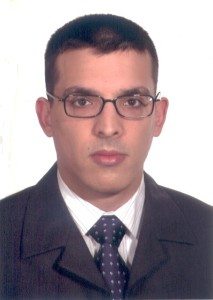 David Gomez Barquero brings unique perspectives as an international standards expert, researcher and academic to his important role as Vice Chairman of the ATSC 3.0 Modulation and Coding Ad-Hoc Group, a key participant in the development of the Physical Layer that’s speeding toward Candidate Standard status this month.
David Gomez Barquero brings unique perspectives as an international standards expert, researcher and academic to his important role as Vice Chairman of the ATSC 3.0 Modulation and Coding Ad-Hoc Group, a key participant in the development of the Physical Layer that’s speeding toward Candidate Standard status this month.
After receiving a double Masters of Science degree in Telecommunications Engineering from the Universitat Politecnica de Valencia (UPVLC) in Spain and the University of Gavle in Sweden in 2004, he went on to earn his Doctorate in Telecommunications from UPVLC in 2009. During his doctoral studies, he was a guest researcher at Sweden’s Royal Institute of Technology, Finland’s University of Turku, and Germany’s Technical University of Braunschweig.
Today, Dr. Gómez-Barquero is a senior researcher at the Institute of Telecommunications and Multimedia Applications (iTEAM-UPVLC), where he leads a research group working on next generation broadcasting technologies.
His previous standardization experience with the European digital television standardization forum DVB covers different topics such as upper layer forward error correction, DVB-T2, T2-Lite, and DVB-NGH.
Shaping the Future
Dr. Gomez-Barquero believes that to get the most out of your ATSC membership one must actively participate in the development of ATSC 3.0, something he states will shape the future of terrestrial broadcasting over the next decade.
“Currently, ATSC 3.0 is the most important project in terrestrial broadcasting worldwide, and there are people working on it not only from the U.S., but also from Europe and from Asia – including China, Japan and Korea.”
As Vice-Chair of the ATSC’s Modulation and Coding ad-hoc group, Dr. Gomez-Barquero has worked on a number of topics, including the selection of the forward error correction codes, bit interleavers and constellations (BICM module, bit-interleaved coding and modulation) and the definition of the optional multiple antenna MIMO system.
While Gomez-Barquero works for a university, he has been able to link ATSC and academics. “I think working in standardization bodies such as ATSC represents a great opportunity for academics to do applied research, work with brilliant researchers from industry, and develop new technologies beyond the current state-of-the art,” he says.
Getting to Know David
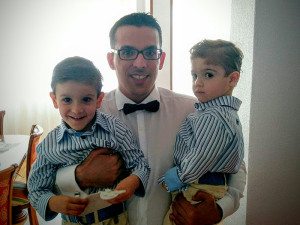 He was born and raised in Spain, where his family still resides. “I belong to a very big and close family, and I’ve always spent Christmas at home despite frequently being abroad. I have one brother and one sister and two wonderful nephews.”
He was born and raised in Spain, where his family still resides. “I belong to a very big and close family, and I’ve always spent Christmas at home despite frequently being abroad. I have one brother and one sister and two wonderful nephews.”
In his spare time, traveling is a passion.
“My main passion is travel. Luckily, with my job I not only get to travel a lot but also get to live abroad,” he says. “People usually are surprised when they found out all the countries where I’ve lived, overall over eight years and a half abroad– Sweden, Finland, Germany, Colombia and the U.S. I plan to go back to Spain next month, but I already have plans to increase the list of countries I call home.”
 In his spare time, traveling is a passion. He also likes cooking, and notes that rice-based paella – considered a national dish in Spain — is originally from Valencia.
In his spare time, traveling is a passion. He also likes cooking, and notes that rice-based paella – considered a national dish in Spain — is originally from Valencia.
Dr. Gomez-Barquero moved to the U.S. last October to focus on ATSC 3.0 and has spent the majority of his free time getting to know New York City.
Posted in ATSC News
News Categories
News Archives
Subscribe
Subscribe to The Standard, our monthly newsletter. Learn More
Join ATSC
ATSC is a membership organization with both voting and observer categories. Voting members include corporations, nonprofit organizations, and government entities, and they participate actively in the work of ATSC. Observers are individuals or entities not eligible to be a voting member.
Subscribe to our Newsletter
Subscribe to The Standard, our monthly newsletter, to stay up-to-date with ATSC news and events around the world.
Site Links
Contact Us
Advanced Television Systems Committee, Inc.
1300 I Street NW, Suite 400E
Washington, DC 20005
Do you have questions about ATSC?
About ATSC
The Advanced Television Systems Committee, Inc., is an international, non-profit organization developing voluntary standards and recommended practices for digital terrestrial broadcasting. ATSC member organizations represent the broadcast, broadcast equipment, motion picture, consumer electronics, computer, cable, satellite, and semiconductor industries. ATSC also develops digital terrestrial broadcasting implementation strategies and supports educational activities on ATSC standards.
© 2024 ATSC












